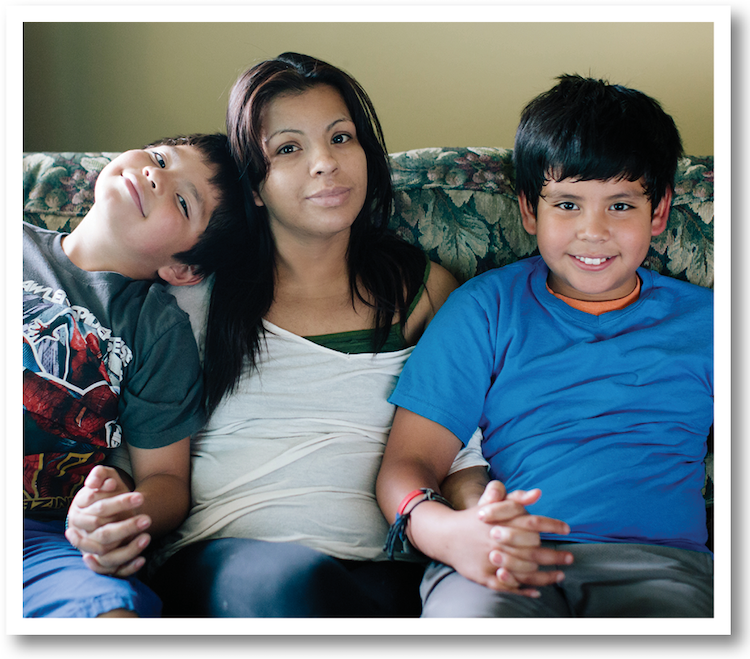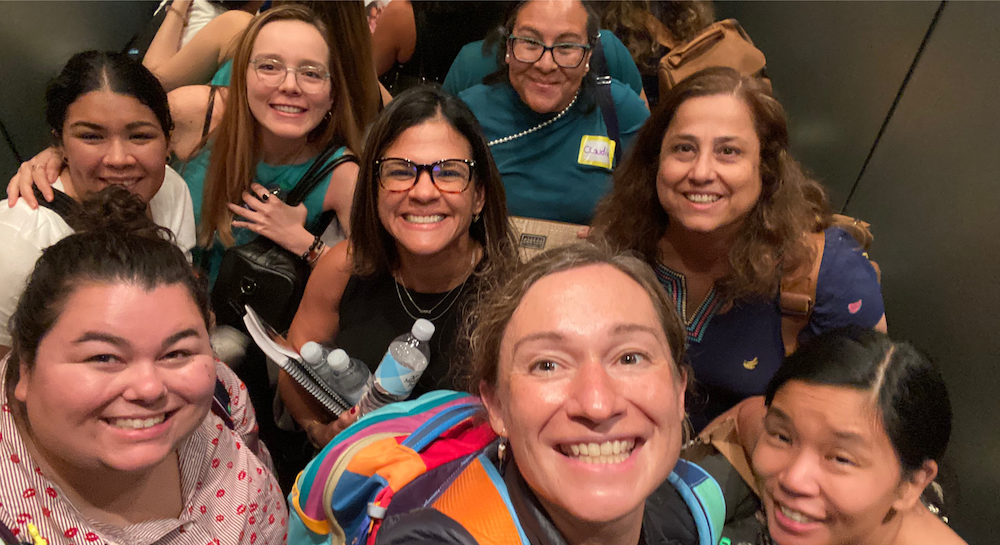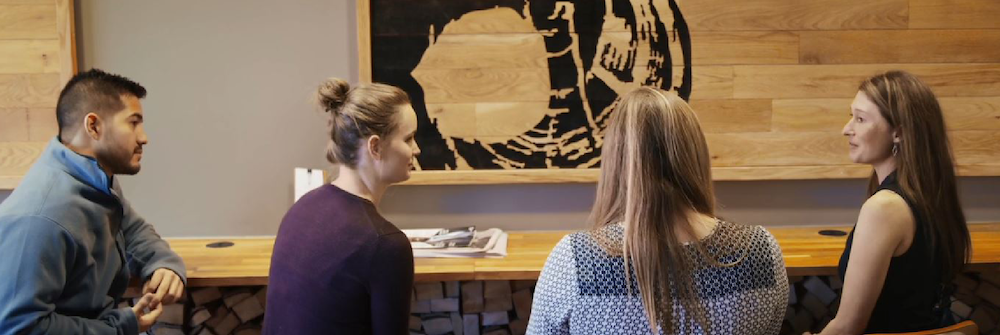Changing the Landscape Through Research and Determination
How a CU Anschutz physician-researcher is working to eliminate disparities in Colorado’s healthcare system.
The life of Lilia Cervantes, MD '05, BA '01, was drastically changed before she was even born. About a week before her birth, her parents immigrated from Mexico to Colorado. As a child, the significance of this event may have eluded Cervantes. In time, she would discover just how different her life was compared to others in the Latino community. Cervantes is an internal medicine hospitalist, researcher and associate professor in the Department of Medicine at the University of Colorado Anschutz Medical Campus. She is also the campus’s first director of immigrant health. Her research is focused on health disparities for underserved communities, including racial and ethnic minoritized individuals and undocumented immigrants.
She was born at Denver Health and grew up near the Valverde neighborhood. Her family didn’t have much money, but took solace in their diverse community.
“Oftentimes kids would come to my house to have dinner, because my family always had dinner,” she said, pointing out that other families in the neighborhood often didn’t have enough to eat. Even as a child, Cervantes wanted to help people in her community. “Walking to and from school, I could see Denver Health. From a very young age, I knew I wanted to be a physician.”
A University of Colorado alumna, Cervantes graduated from CU Boulder with a degree in molecular biology. She then earned a medical degree and completed an internal medicine residency at CU Anschutz. Desiring to help uninsured and socially marginalized individuals and groups, she went back to her roots to work at Denver Health as an internal medicine hospitalist.
Like all hospitalists across the country, she endured many highs and lows. But a particular circumstance – and then a particular patient – stood out to her.
A clear disparity
Cervantes has spent many of the past 10 years researching how the healthcare system handles individuals with kidney issues. About 786,000 people in the U.S. live with kidney failure or end-stage kidney disease.
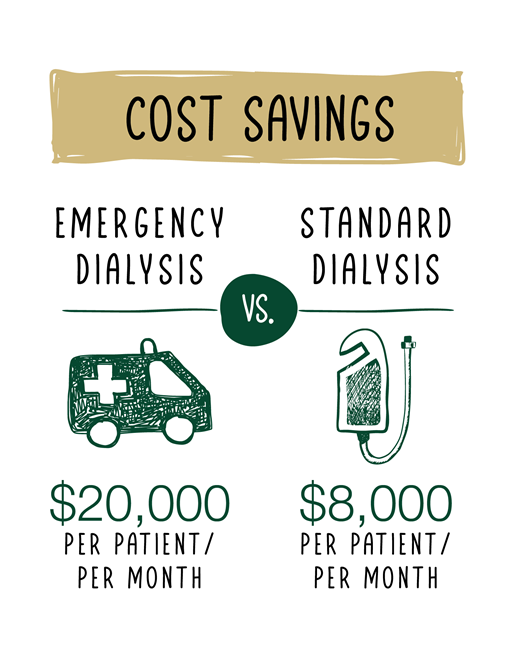 Kidneys filter the blood and remove toxins and excess fluid. When an individual has kidney failure, the toxins and fluid build up in the body and as a result, people feel short of breath, nauseous, and tired. There are three treatment options for people with kidney failure: dialysis (hemodialysis or peritoneal), kidney transplantation, and conservative management. A lack of available kidney transplants means that most of these individuals manage kidney failure with the most common form of dialysis: hemodialysis. In this procedure, a patient’s blood is filtered by a machine for four hours, three times per week. The treatment is usually covered by a patient’s health insurance.
Kidneys filter the blood and remove toxins and excess fluid. When an individual has kidney failure, the toxins and fluid build up in the body and as a result, people feel short of breath, nauseous, and tired. There are three treatment options for people with kidney failure: dialysis (hemodialysis or peritoneal), kidney transplantation, and conservative management. A lack of available kidney transplants means that most of these individuals manage kidney failure with the most common form of dialysis: hemodialysis. In this procedure, a patient’s blood is filtered by a machine for four hours, three times per week. The treatment is usually covered by a patient’s health insurance.
When Cervantes was working as a hospital medicine physician, people without health insurance or an ability to pay out of pocket found themselves in a dire situation: due to state Medicaid policies, they could only receive dialysis in emergencies, through a law which compels hospitals to treat anyone whose life is in imminent danger, regardless of their financial circumstances. The Medicaid policies resulted in dozens of people being eligible for treatment only once per week or less.
Patients without health insurance had no choice but to wait until their symptoms were critical before they could access treatment. They entered the emergency room short of breath, often unable to walk or speak, sometimes suffering cardiac arrest. In their emergency medical condition, they could receive treatment regardless of their ability to pay, and the state Emergency Medicaid program would cover the cost. If they came in too soon, before they were gravely ill, Medicaid policies prevented the hospital from providing dialysis care.
Cervantes witnessed firsthand the heartbreaking disparity between the insured and a group she felt a kinship with – undocumented Latino immigrants, who were not eligible for health insurance. Growing up in Valverde, she was part of a community that included many undocumented individuals. She knew they had the same hopes, fears, wishes and dreams as anyone else. As a physician, it was difficult for her to watch people suffer so immensely simply because they didn’t have health insurance.
Hilda
Cervantes met Hilda, a patient with kidney failure and young mother of two boys, at Denver Health. Cervantes and Hilda quickly became friends. They were close in age, and both had two children. There was a significant difference, though – Hilda was an undocumented immigrant.
“I think part of the reason why I was so inspired by Hilda was because our lives were parallel,” Cervantes said. “If my parents hadn’t moved to the U.S. seven or 10 days before I was born, I wouldn’t have had all these opportunities. I wouldn’t have been able to pursue a medical degree. And here’s this incredible person who fled poverty and domestic violence and she’s struggling with not receiving standard of care dialysis.”
Hilda felt like a burden to her two sons, who were sick with worry about her condition. Every week, their mom would become seriously ill and return to the hospital for dialysis, stay overnight, and then receive another dialysis treatment the next day, just to keep her alive.
Hilda’s children wouldn’t go to school because they were worried that if they left her alone at home, no one would be around to call an ambulance if she needed to go to the hospital. “It was sad to see her come in near death…watching her two little boys see her go through that was really sad,” Cervantes said.
Hilda decided to preemptively end her dialysis treatments because of the distress it caused her children. In the last weeks of her life, she made foster care arrangements for them to make sure they would be raised by loving, caring parents. She went back to Mexico to visit her father one last time and died shortly after.
Cervantes lost a patient and a friend. She watched two children lose their mother. “I was just so struck with the difference in our circumstances because I was born here, and she wasn’t.” Cervantes felt sadness and anger. But instead of letting those emotions consume her, “my anger led to determination.”
Cervantes gathered a research team that illuminated the excruciating nature of dialysis treatments for uninsured Colorado residents. It highlighted the mental anguish of being near-death week after week and having to rush to the hospital; the loss of jobs and housing due to constantly being sick; the higher death rate of those getting dialysis once a week compared to those who received it three times per week; and the suffering of family members and physicians caring for the patients.
Cervantes’ activism worked; her research gained national attention. She was featured on CNN and published research articles in Annals of Internal Medicine and Journal of the American Medical Association. She met with health policy professionals to discuss her findings and to work on making changes to Colorado’s healthcare system.
On February 1, 2019, Colorado became the sixteenth state to allow undocumented immigrants to receive Medicaid healthcare coverage for standard dialysis: scheduled, thrice-weekly treatments. Since then, several other states have adopted the practice. Not only does the change save lives and provide care to those who desperately need it - it also saves Colorado’s state Medicaid department money (about $180,000 per person, per year). As Cervantes found in her research, it’s far more expensive to wait until patients are severely ill to help them than it is to give them standard dialysis.
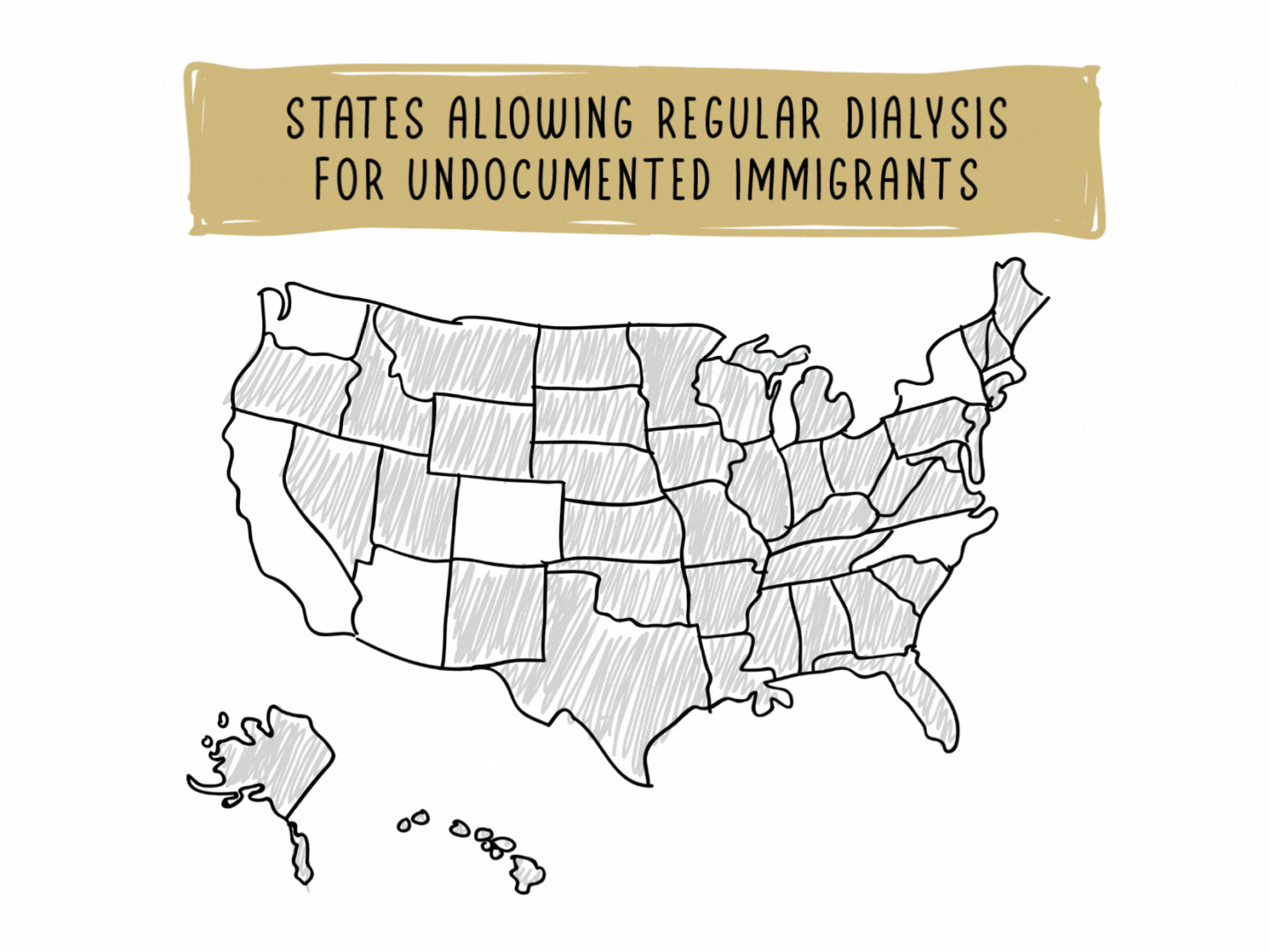
Developing for the future
Even before she was helping to change healthcare policies, Cervantes was looking out for the underserved.
“Another huge passion of mine is diversifying the healthcare workforce and career development work,” she said. In 2009, she founded the Healthcare Interest Program (HIP) at Denver Health. The program offers professional development to undergraduate students who often come from similar socioeconomic and ethnic backgrounds as the richly diverse patient population at Denver Health. “Many feel overlooked and feel like working in healthcare is not a possibility for them. We wanted to change that,” she said. The program is still active today.
Along with colleagues, Cervantes also co-founded the Hummingbird Project, a newly launched collaboration between CU Anschutz and the Colorado Behavioral Health Administration. The program operates at six different high schools in Colorado and addresses the shortage of professionals and need for diversity in the behavioral health workforce by providing administrative, programmatic and professional support to Colorado youth.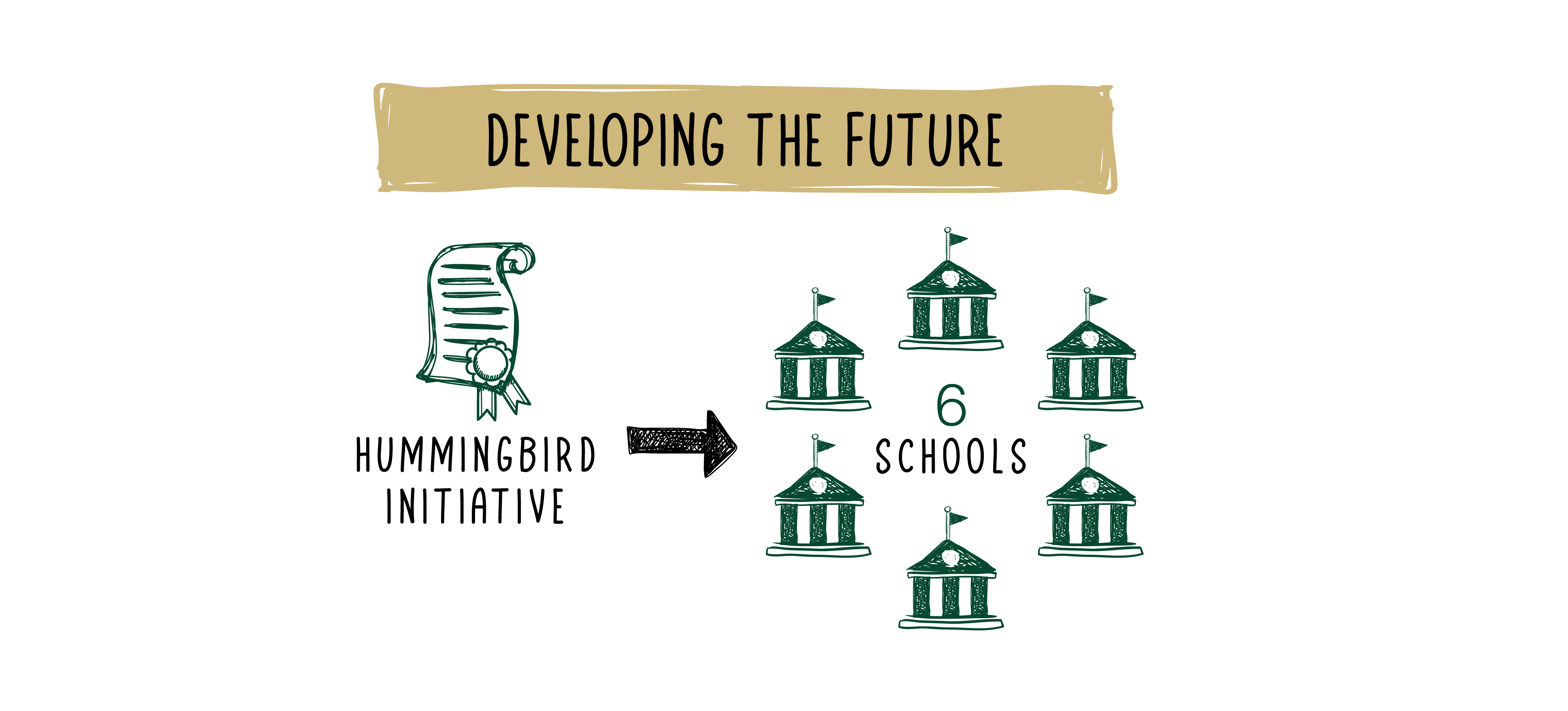
Community oriented
Cervantes remains active in the Denver community, constantly focused on the most important needs of underserved people.
Over the past few years, she was on the frontlines of the COVID-19 pandemic. She was concerned about the spread of misinformation regarding vaccines in Denver’s Latino communities and launched research projects and programs to help reduce the disproportionate burden of COVID-19 cases and deaths in those communities. Much of her research consisted of interviews with COVID-19 survivors to learn about the challenges of Latino people during the pandemic.
“Eighty percent of my time is spent doing research, and my research is person-centered. Being out in the community, engaging and interviewing people who are affected by social and structural determinants of health,” she said.
It’s this community-centric research and activism that makes Cervantes’ work unique. She previously embodied the spirit and mission of Denver Health to provide healthcare for all, and now at CU Anschutz, she brings the spirit of the University of Colorado outside the labs and into the communities of Denver. “That’s probably what I love most about my job, that it’s not super-structured, and it allows me to be relationship and community-oriented.”
Relationships are also important in philanthropy, and Cervantes hopes that her work on healthcare disparities will gain the attention of community benefactors. “We love this work and need funds to create change through research, programs, and advocacy for our most diverse and socially marginalized communities in Colorado,” she said.
Resources to fund research projects will be instrumental in further identifying and changing inconsistencies in the healthcare system. As Cervantes has demonstrated, investigating and uncovering the disadvantages faced by racial and ethnic minoritized groups and then presenting the research to health policy professionals and state agencies can lead to real and lasting change.
With deep expertise and relentless energy, Cervantes is dedicated to continuing and building upon her prior work at Denver Health with the collaborative relationships she’s established there and at CU Anschutz. “There’s a network of people I can lean on when I’m working on research at CU Anschutz. It feels like home.”Never-ending pursuit
To balance her persistence and tenacity at work, Cervantes makes sure to spend quality time with her husband and two daughters. They like hiking, being in nature, enjoying their pets and traveling.
She also uses exercise to center herself. “Sometimes I get emotionally distressed by the entrenched social injustice, and the one thing that really grounds me is running. Four to five miles in, I get these really creative ideas about how to address social and structural challenges.”
It’s that wellspring of creativity that keeps Cervantes on the path toward enacting change. She’s published over sixty peer-reviewed articles and counting, and hopes her findings will inspire healthcare advocates and philanthropic community partners alike. She understands that gifts from the community swiftly move healthcare projects ahead and save lives. “Our team is meaningfully engaged in community. In partnership with communities, we have engaged in high-impact health disparities research that changes healthcare policy,” she said.She hopes to help establish an endowed chair focused on Latino health disparities that will support CU Anschutz’s work in this area far into the future. Philanthropy has created similar opportunities on campus, and she hopes her research will galvanize support.
Her other research topics include expanding access to cancer treatment for undocumented immigrants, improving the care and well-being of Latinos with kidney disease, improving communication and reducing medical mistrust for Latinos with limited English proficiency, and improving health insurance literacy and primary care preventative services.
Michel Chonchol, MD, professor of medicine and chief of the Division of Renal Disease and Hypertension at the CU School of Medicine has worked with Cervantes on several research projects. He admires her pursuit of justice and encourages community benefactors to take note of her work: “It is exciting to see the impact she is having on the lives of undocumented immigrants with kidney failure…she is an exceptional physician and human being who has redefined what it means to go above and beyond.”
Despite the myriad of heartbreaking events she’s witnessed, Cervantes keeps going. What inspires her to stay the course, despite the setbacks and frustrations?
“We’ve conducted research that has successfully reduced health disparities not once, but several times,” she said. “I can say with certainty that our research has real impact in improving the care of socially marginalized communities. What inspires me are the patients - the richly diverse patients are incredibly inspiring.”It is exciting to see the impact she is having on the lives of undocumented immigrants with kidney failure ... she is an exceptional physician and human being who has redefined what it means to go above and beyond.

Michel Chonchol, MD
Professor of medicine and chief of the Division of Renal Disease and Hypertension at the CU School of MedicineTo hear more of Cervantes' story in her own words, watch this video.
Want to share this article with a friend? Send them a link to Momentum via email.

